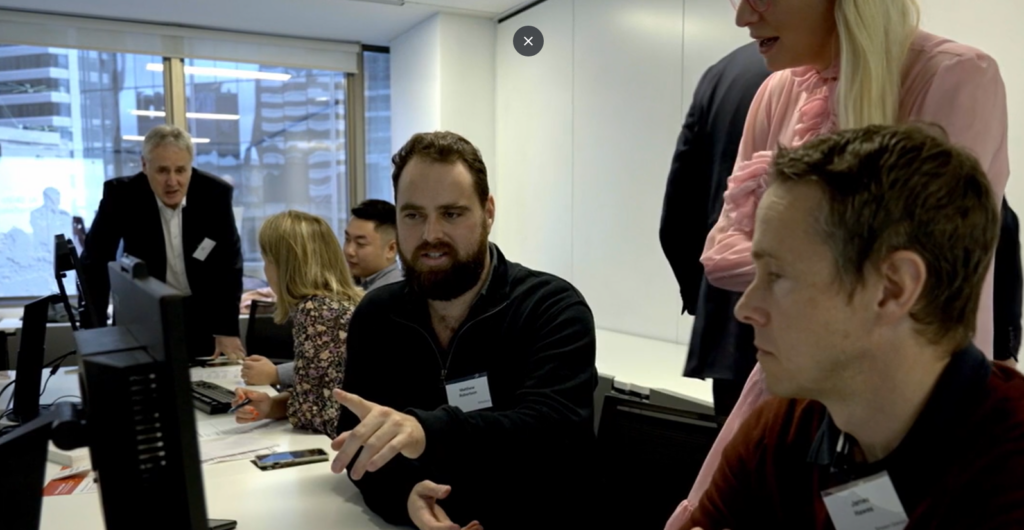Thomson Reuters ‘challenged’ lawyers in New Zealand by inviting them to test the efficiency of professional grade AI technology, CoCounsel, in Auckland.
This article shares participants’ observations and measures the output of the professional-grade AI assistant in comparison to traditional, manual processes.
CoCounsel is an AI application customised for legal practice. It is built by Casetext and powered by GPT-4. It is aimed at liberating legal professionals from ‘drudge work.’
“Significant time saving advantages”
Accessible AI technology represents a business transformation for many industries. Based on data from the ‘Future of Professionals 2024’ survey, 77% of business leaders believe AI tools will have a high or transformational impact.
For Matthew Heaphy, New Zealand Market Development at Thomson Reuters, running the session sparked creativity around CoCounsel use cases.
“I had the privilege to facilitate a Thomson Reuters AI Skills Challenge in Auckland, where a number of our customers joined us to experience our new Legal AI Assistant, CoCounsel, first-hand,” Matthew said.
Working in pairs, participant groups were challenged to work on a series of legal tasks. The tasks required participants to read and understand nearly 600 pages of content, approximately 184,000 words.
Each group gave an estimate of the manual effort that would be required to complete the tasks. On average, participants estimated it would take around 12 hours to complete. To compare, the groups used CoCounsel to complete the tasks in question.
At an average reading speed of 300 words per minute, according to Matthew, that’s potentially 10 hours of solid reading; excluding analysis or writing he observed.
“CoCounsel was able to produce initial outputs in minutes, representing significant time-saving opportunities; even accounting for verification.”
“I was really impressed with the creative thinking around the opportunities to use AI technology in legal practice.” Matthew said.
For James Hawes, Partner at Simpson Grierson, the hands-on experience to trial CoCounsel was very insightful.
“I’m a corporate Partner and I’ve spent the last couple of hours trialling CoCounsel,” said James.
“Assuming that you have the right questions, and the right documents fed in, I can see significant time saving advantages. I very much look forward to using it in our processes.”
Tom Maasland, Partner at MinterEllisonRuddWatts sees there is a great opportunity for the legal community after testing CoCounsel at the AI Skills Challenge.
“Much has been made of the potential of generative AI to reduce the number of lawyers and law firms, but actually the reverse could be true,” Tom said.
Can AI be trusted with substantive legal work?
Professional-grade AI can be trusted to support substantive level work, if there is a human expert in the loop. CoCounsel is designed to operate within trusted parameters, to maintain security, reliability and accuracy by exclusively analysing proprietary data the client has uploaded.
“Protecting client data is our number one priority,” Matthew emphasises.
“Trust is at the heart of everything we do at Thomson Reuters, underpinned by our commitment to the Thomson Reuters Trust Principles.”
Understandably the rapid rise of AI in the LegalTech has raised questions about privacy and security. According to the Tech, AI and the Law 2024 report (Australian Edition), more than three in five in-house counsel (65%) said that data and cybersecurity pose a big risk for their legal department.

“Naturally, trust and reliability is embedded into CoCounsel’s product design and its underlying technology framework,” Matthew added.
Thomson Reuters lawyers and data scientists have also calibrated CoCounsel to provide responses based on vetted content and functionalities. CoCounsel accesses GPT-4 through dedicated servers. User data is not used to train the AI model and is never stored by OpenAI. CoCounsel even acknowledges when a query is beyond its validated scope of knowledge.
“CoCounsel makes it easy for users to verify its work, allowing the human to remain in the loop at all times,” Matthew said.
A promising use case for litigation work
Litigators that tested CoCounsel at the AI Skills Challenge found that the summarisation and review document skills would significantly speed up their workflow.
For Victoria Cole, Senior Solicitor at Duncan Cotterill, trialling CoCounsel will alleviate the repetitive, time-consuming work, such as tasks that require sifting through large datasets.
“We’ve been looking at how we can extract data from documents and present them in the table.”
“When you’ve got the large data sets, by using CoCounsel to help put that information into a table, reduces the margin of human error,” Victoria said.
CoCounsel’s timeline/chronology function would be a time saver for Madeleine Christensen, Lawyer at Greenwood Roche, whose role is predominantly litigation.
“I can already see how much time its going to save me, especially in the function that helps you create timelines and chronologies,” shared Madeleine.
Businesses would be wise to adopt AI, so their teams could focus on human-centric work. While proceeding with caution can be understandable, businesses that are not working towards adopting, integrating and gaining value from AI tools will be left behind.
AI tools are advancing so quickly that businesses cannot afford to sit on the sidelines. As businesses prepare for 2025, those that continue to invest in AI technology are set to gain competitive advantages.


